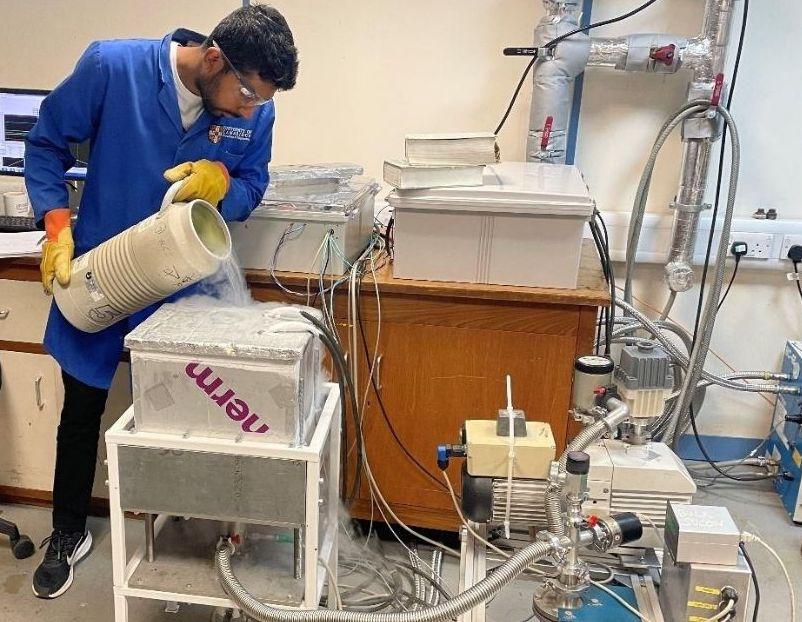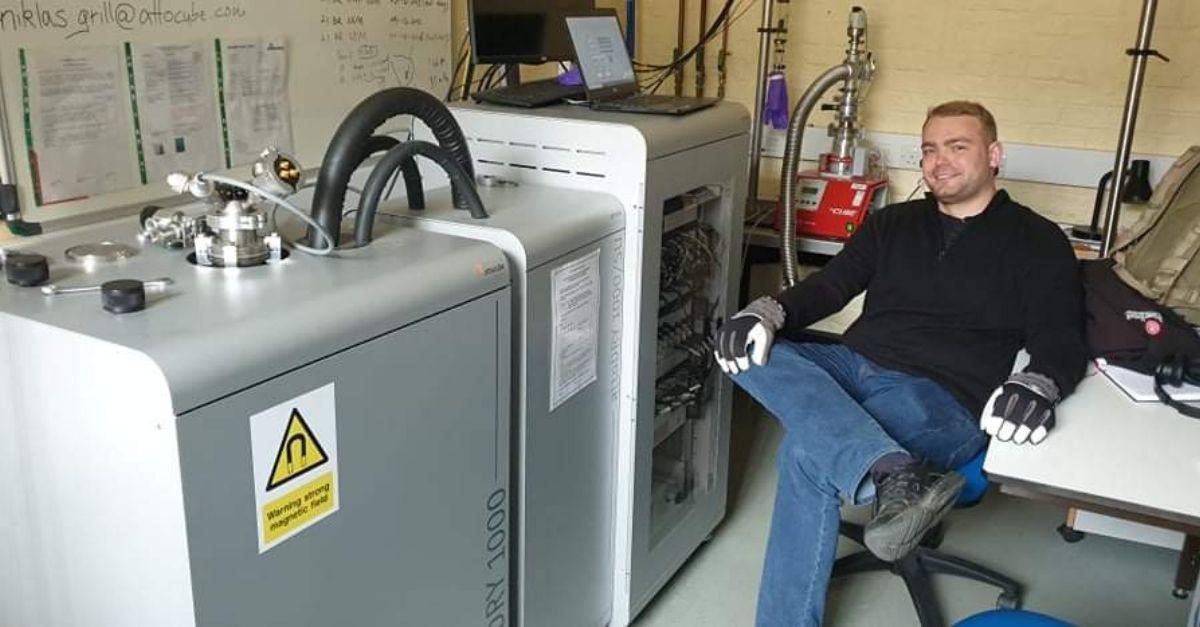Applications
 Part of the Oxford Instruments Group
Part of the Oxford Instruments Group
Expand
Collapse
Superconducting magnets are the primary worldwide application of superconductivity. MRI has revolutionised medical imaging, and NMR spectroscopy has enabled the discovery of modern drugs. In physical science research, high-field superconducting magnets provide a crucial tool for exploring new quantum materials. They are essential for research into novel superconductors, which in turn produce candidate materials for further applications which can power the green economy.
Since their inception in the late 1950s, superconducting magnets have relied on ‘conventional’ low-temperature superconductors (LTS). Today, next-generation, high-temperature superconductors (HTS) promise to revolutionise superconducting magnet technology, making it possible to build more compact and powerful magnets.
Here at Oxford Instruments NanoScience we have been pioneering superconducting magnet technology since our foundation and are actively engaging in HTS magnet research.
We are now happy to announce a new 4-year ICASE-supported PhD project, as part of a collaboration with the University of Southampton that will focus on exploring and understanding the characteristics of ‘hybrid’ superconducting magnets, which combine HTS coils with conventional LTS.
With international PhD fees fully funded we hope to encourage all applicants passionate about working at the intersection between academic and industrial R&D. Although the project will be primarily based at the University of Southampton, using an Oxford Instruments, cryogen-free, 10 tesla wide bore LTS magnet, the successful candidate will also be able to spend time here at Oxford Instruments working on world-leading, ultra-high B field systems and products with the wider team. Our common goal is to enable a cost-effective, compact magnet system at higher magnetic fields than those available today.
To speak to the amazing opportunities arising from this project we recently caught up with students from our previously sponsored PhDs, one on “Bulk Superconductors for Benchtop NMR” in cooperation with the University of Cambridge, and the other on “Jointing High-Temperature Superconductors For Practical Ultra-high-field Magnets” in cooperation with the University of Oxford.

Here is what our students Mr Dian Weerakonda Arachchilage and Petr Zagura had to say about their experiences thus far. Mr Dian Weerakonda Arachilage is based at the University of Cambridge and his project is supervised by Prof. John Durrell.
“When I came across the PhD project which aimed to develop a benchtop NMR spectrometer using high-temperature bulk superconductors, I recognised it as an excellent opportunity to carry out high-impact research in a world-leading research group.
In my first year, we finished working on the experimental rig and gathered some interesting preliminary results.
My industrial sponsor, Oxford Instruments NanoScience, has played a key role in informing the research with their expertise. Both their input and engagement have been vital. I look forward to learning new things, solving new problems, and, hopefully, proving that bulk superconductors can be used for making a portable NMR-grade magnet.
The photo shows me cooling down a copper pulse charging coil using liquid nitrogen in preparation for pulse-magnetising a bulk superconductor.”
Petr Zagura is based at the University of Oxford and his project is supervised by Prof. Susannah Speller.
“High-field magnets are essential components of many high-tech devices, including particle accelerators, fusion reactors and NMR/MRI machines. My particular interest is the crafting of joints which have the lowest possible resistance (“persistent” joints), such as those essential for the magnets at the core of NMR and MRI machines.

My efforts thus far have been geared towards creating a measurement capacity in the research group for the simultaneous measurement of joint resistance and critical current, via trapped field decay. This equipment is now working and routinely producing sound results.
I have successfully tested both soldered LTS joints and melt-processed HTS joints created on closed coils, which demonstrated persistent behaviour. Moving forward, I will be focusing on several different areas of persistent jointing, with lead-free LTS joints, improved Bi-2212 joints and joints between dissimilar superconducting materials on my radar.
The funding provided by the iCASE studentship has been absolutely essential in allowing me to continue this project. I started in October 2021 as a self-funded student and continued as such for two terms, until I was selected for this incredible opportunity. It really saved my bacon! I could not have continued without this joint EPSRC and Oxford Instruments funding for very much longer.
I would encourage anybody with an interest in superconductor research to consider this incredible opportunity!”
Even though shaping the industrial side of research and development is our mission, here at Oxford Instruments we are proud and excited to support ambitious and dedicated candidates from all over the world in higher education because of their invaluable contributions to the field.
There is still time to apply for the University of Southampton PhD project, so don’t miss your opportunity to leave your mark in the field - https://www.jobs.ac.uk/job/CQW...